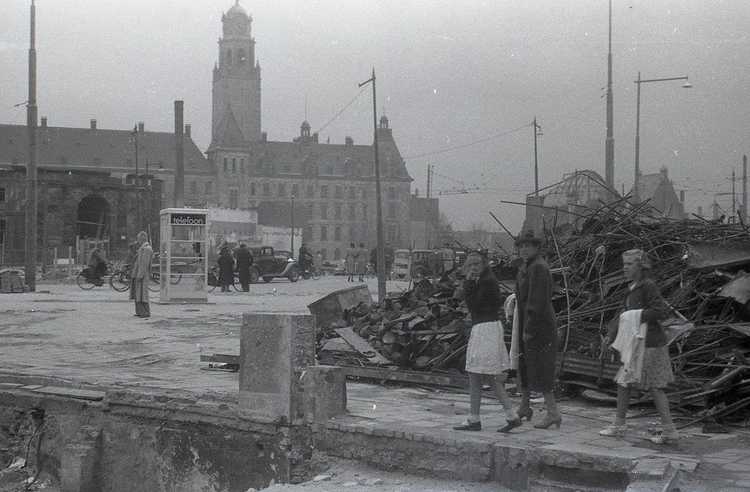A summary: Warsaw. Germany needed Poland so the Germans bombarded Warsaw. Rotterdam has come a long way since the war but back then there weren’t any military targets in Rotterdam, just military support, but the Germans also needed to have the Netherlands. I wrote in my book: they made their own beds to lie in making the choices they made over there, targeting civilian towns to help their own army. In the beginning during the famous Battle of Britain, they purely attacked military targets. Airports, ports and so on. That was until they made the error and took the City of London. The City of London! the heart of London. The British then said, what you can do, we can do too. The next day they went to Berlin. Hitler became very angry because he had assured the German citizens that the British would never bomb Germany. Hitler then ordered other targets to be bombed in England. They started bombing other cities. London was attacked constantly every night from the night of 7 th /8 th September 1940 until the night of 13 th /14 th November 1940, a total of 67 consecutive nights, by hundreds of aircraft. Then they took Coventry.
Coventry can be compared to Essen; a large town with a lot of factories and similar business. You wouldn’t be able to hit this town without hitting the core. Just as in Coventry. In addition, they used a type of bomb that couldn’t be aimed. This was a known fact. The German word “ausradieren” (erase), was changed by the Germans to "England will be coventriert" (relating to Coventry being erased and therefore all of England). They knew exactly what they had done there.
Bomber Harris was coincidentally in London in 1940 (he later became Commander of RAF Bomber Command) and then said:
"They're sowing the wind, they're going to reap the whirlwind."
And that's what happened. Coventry was the perfect example for the English. They knew fairly accurately how many German aircrafts had joined in the attack, they knew fairly accurately the number of bombs, etc., and of course they knew the resulting damage. A good lesson for the English. A taste of their own medicine.
If we want to discuss numbers…….. In Germany, as a result of the bombing during World War II 600 000 people were killed . Not only women and children but also police officers, firefighters, workers in the factory, etc. What about the six million Jews killed? A good friend of mine from Essen, a history teacher, put the following down on paper: On a day in Essen around 480 people were killed by the bombing, that same day in Auschwitz two Jewish transport trains arrived and 1452 of these Jews were killed. He said we didn’t know this then but we know it now.
Speer freely admitted that they had bombed England. Even among themselves it was obviously known. Goebbels was the propaganda minister, who talked about “terror fliegers” and it worked but it wasn’t true. Speer also knew that not one factory could be targeted without touching the rest. I already gave you the example of Coventry. I had a long ongoing disagreement with the head of the German historian department in Freiburg. Not a 'little boy', a Mr Doctor Boog. He once held a lecture on the air strikes as carried out in England, stating that supporting the military front and 'precision attacks' were of utmost important. I asked why they had then used air mines in Coventry. Air Mines are dropped with a parachute, using a parachute meant you have no control over it. He said he didn’t know anything about that, so I said I would look into it for him. The following year he came to me and said:
"Mr Zwanenburg, you're right, they were used. His whole argument immediately fell to pieces."
